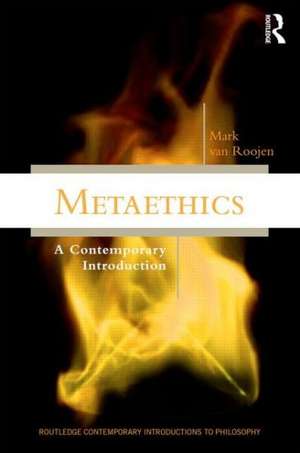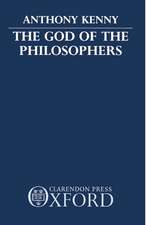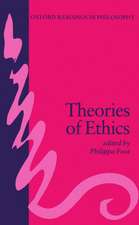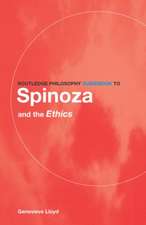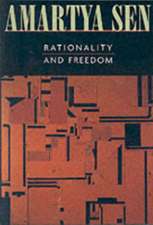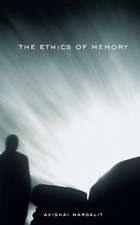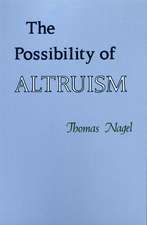Metaethics: A Contemporary Introduction: Routledge Contemporary Introductions to Philosophy
Autor Mark van Roojenen Limba Engleză Paperback – 11 iun 2015
| Toate formatele și edițiile | Preț | Express |
|---|---|---|
| Paperback (1) | 388.42 lei 6-8 săpt. | |
| Taylor & Francis – 11 iun 2015 | 388.42 lei 6-8 săpt. | |
| Hardback (1) | 1167.58 lei 6-8 săpt. | |
| Taylor & Francis – 26 iun 2015 | 1167.58 lei 6-8 săpt. |
Din seria Routledge Contemporary Introductions to Philosophy
-
 Preț: 311.90 lei
Preț: 311.90 lei -
 Preț: 316.33 lei
Preț: 316.33 lei -
 Preț: 296.58 lei
Preț: 296.58 lei -
 Preț: 265.28 lei
Preț: 265.28 lei -
 Preț: 287.79 lei
Preț: 287.79 lei -
 Preț: 295.29 lei
Preț: 295.29 lei -
 Preț: 302.64 lei
Preț: 302.64 lei -
 Preț: 295.63 lei
Preț: 295.63 lei -
 Preț: 311.47 lei
Preț: 311.47 lei -
 Preț: 265.87 lei
Preț: 265.87 lei -
 Preț: 268.17 lei
Preț: 268.17 lei -
 Preț: 310.22 lei
Preț: 310.22 lei -
 Preț: 356.94 lei
Preț: 356.94 lei - 20%
 Preț: 239.80 lei
Preț: 239.80 lei -
 Preț: 342.06 lei
Preț: 342.06 lei -
 Preț: 286.87 lei
Preț: 286.87 lei -
 Preț: 281.18 lei
Preț: 281.18 lei -
 Preț: 372.91 lei
Preț: 372.91 lei -
 Preț: 280.28 lei
Preț: 280.28 lei -
 Preț: 334.58 lei
Preț: 334.58 lei -
 Preț: 293.52 lei
Preț: 293.52 lei -
 Preț: 280.92 lei
Preț: 280.92 lei - 9%
 Preț: 936.25 lei
Preț: 936.25 lei -
 Preț: 350.02 lei
Preț: 350.02 lei -
 Preț: 231.05 lei
Preț: 231.05 lei -
 Preț: 281.42 lei
Preț: 281.42 lei -
 Preț: 375.33 lei
Preț: 375.33 lei -
 Preț: 386.00 lei
Preț: 386.00 lei -
 Preț: 346.33 lei
Preț: 346.33 lei -
 Preț: 366.80 lei
Preț: 366.80 lei
Preț: 388.42 lei
Nou
Puncte Express: 583
Preț estimativ în valută:
74.32€ • 77.60$ • 61.51£
74.32€ • 77.60$ • 61.51£
Carte tipărită la comandă
Livrare economică 05-19 aprilie
Preluare comenzi: 021 569.72.76
Specificații
ISBN-13: 9780415894425
ISBN-10: 0415894425
Pagini: 324
Dimensiuni: 152 x 229 x 18 mm
Greutate: 0.43 kg
Ediția:1
Editura: Taylor & Francis
Colecția Routledge
Seria Routledge Contemporary Introductions to Philosophy
Locul publicării:Oxford, United Kingdom
ISBN-10: 0415894425
Pagini: 324
Dimensiuni: 152 x 229 x 18 mm
Greutate: 0.43 kg
Ediția:1
Editura: Taylor & Francis
Colecția Routledge
Seria Routledge Contemporary Introductions to Philosophy
Locul publicării:Oxford, United Kingdom
Cuprins
Acknowledgments. 1. Introduction. 2. A Subject Matter for Ethics. 3. Moral Epistemology and the Empirical Under-Determination of Ethical Theory. 4. The Practicality of Morality and the Humean Conception of Reason and Motivation 5. Error Theory. 6. Simple Subjectivism. 7. The Cognitivist Heirs of Simple Subjectivism – Ideal Observers and Ideal Agents. 8. Noncognitivist Heirs of Simple Subjectivism. 9. Fictionalism. 10. Externalist Backlash. 11. Scientific Naturalism I: Cornell Realism. 12. Scientific Realism II: Moral Functionalism and Network Analyses. 13. Nonnaturalism and Anti-Reductionism. 14. Odds, Ends and Morals. Glossary
Notă biografică
Mark van Roojen is Professor of Philosophy at the University of Nebraska–Lincoln. He works primarily in ethics and metaethics but remains interested in the rest of philosophy. His most widely read papers are on moral rationalism, expressivism, moral psychology, and the semantics of moral terms.
Recenzii
"The contemporary landscape of metaethics is a topsy-turvy field of complex contributions, new twists on old views, and fundamental disputes about how, even, to describe the basic questions under dispute. In Metaethics: A Contemporary Introduction, one of the masters of the craft cuts through this complexity in order to put readers in a position to see the compelling philosophical problems that lead to these different comprehensive theories."
Mark Schroeder, University of Southern California, USA
"Beautifully conceived, this book begins by explaining three central goals that drive much contemporary metaethical theorizing: to provide a plausible conception of the subject-matter of ethical thought and talk, to explain the practicality of ethics, and to explain the possibility and texture of ethical knowledge. The book then uses these goals to motivate and evaluate systematic metaethical theories, from simple views that are often used as instructive foils to the most influential contemporary options. Fair-minded, illuminating, and accessible to the neophyte, this is an invaluable resource for students and teachers of introductory courses in metaethics."
Tristram McPherson, Virginia Polytechnic Institute and State University, USA
"Mark van Roojen's new work is now the finest book of its kind. It is focused on the right questions, it sympathetically reconstructs and fairly criticizes the major arguments offered for the major metaethical positions, and it is informed throughout by a deep familiarity with the philosophical terrain. This will be a huge help for those seeking to acquaint themselves with the history of metaethics over the past two generations. This is a terrific book."
Russ Shafer-Landau, University of Wisconsin-Madison, USA
Mark Schroeder, University of Southern California, USA
"Beautifully conceived, this book begins by explaining three central goals that drive much contemporary metaethical theorizing: to provide a plausible conception of the subject-matter of ethical thought and talk, to explain the practicality of ethics, and to explain the possibility and texture of ethical knowledge. The book then uses these goals to motivate and evaluate systematic metaethical theories, from simple views that are often used as instructive foils to the most influential contemporary options. Fair-minded, illuminating, and accessible to the neophyte, this is an invaluable resource for students and teachers of introductory courses in metaethics."
Tristram McPherson, Virginia Polytechnic Institute and State University, USA
"Mark van Roojen's new work is now the finest book of its kind. It is focused on the right questions, it sympathetically reconstructs and fairly criticizes the major arguments offered for the major metaethical positions, and it is informed throughout by a deep familiarity with the philosophical terrain. This will be a huge help for those seeking to acquaint themselves with the history of metaethics over the past two generations. This is a terrific book."
Russ Shafer-Landau, University of Wisconsin-Madison, USA
Descriere
Metaethics: A Contemporary Introduction provides a solid foundation in metaethics for advanced undergraduates by introducing a series of puzzles that most metaethical theories address. These puzzles involve moral disagreement, reference, moral epistemology, metaphysics, and moral psychology. From there, author Mark van Roojen discusses the many positions in metaethics that people will take in reaction to these puzzles. Van Roojen asks several essential questions of his readers, namely: What is metaethics? Why study it? How does one discuss metaethics, given its inherently controversial nature? Each chapter closes with questions, both for reading comprehension and further discussion, and annotated suggestions for further reading.
